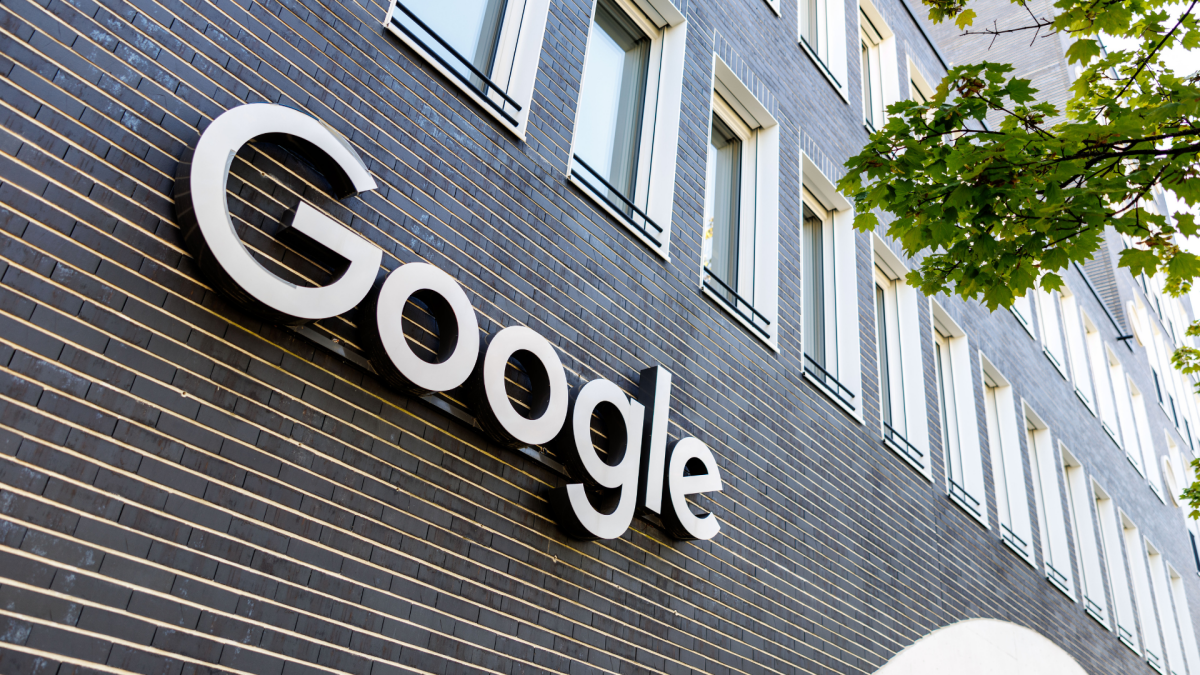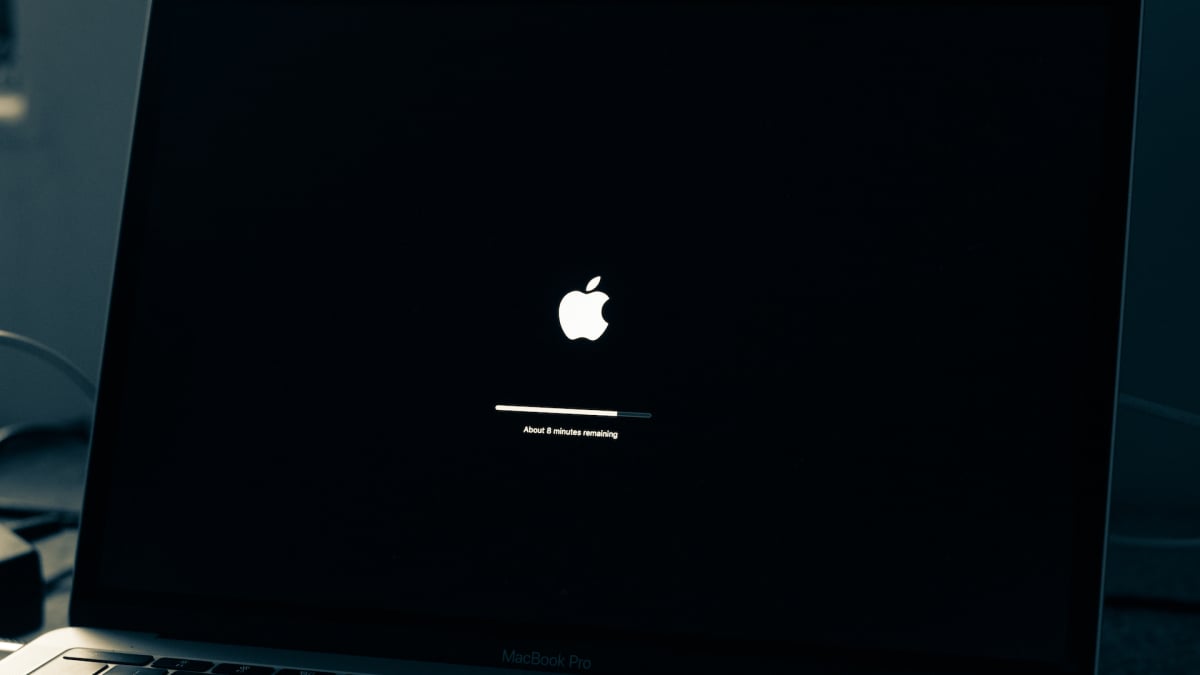Google has gotten a foul repute as of late for being a bit overzealous in the case of combating advert blockers. Most just lately, it’s been noticed routinely turning off widespread advert blocking extension uBlock Origin for some Google Chrome customers. To a level, that is smart—Google makes its cash off advertisements. However with malicious advertisements and information trackers all around the web nowadays, customers have reliable causes to wish to block them. The uBlock Origin controversy is only one aspect of a debate that goes again years, and it’s not remoted: your favourite advert blocker will seemingly be affected subsequent. Listed below are the most effective methods to maintain blocking advertisements now that Google is cracking down on advert blockers.
Why is Chrome turning off advert blockers?
Google first made its intentions for advert blockers clear again in 2019, when it mentioned how the extensions can be affected by Chrome’s replace to the Manifest V3 extensions platform, set to go into full impact subsequent yr. There are numerous technical particulars right here, however suffice it to say that advert blocker builders weren’t comfortable. Google says that Manifest V3 is meant to make Chrome extensions safer, and that it’s “not stopping the event of advert blockers or stopping customers from blocking advertisements.” Nevertheless, the replace cuts off entry to the Net Request API that many advert blockers, not simply uBlock Origin, depend on to flat out block visitors to and from malicious pages. Net Request can be utilized for good or unwell, however with out it, there’s potential for weaker extensions and permissions nightmares as strict as needing customers to permit advert blockers on a per-site foundation, which might transcend being annoying to truly introducing extra safety points.
CEO of advert blocking firm Ghostery, Jean-Paul Schmetz, defined the issue with extensions that use a per-site permission construction to PCWorld: “The purpose was to enhance privateness, however that by no means truly occurred. As a result of efficient extensions compliant with Manifest V3 might want to request entry to each single web site…customers might grow to be complacent with these requests, and make themselves extra susceptible to rogue actions.”
Ghostery director of engineering and product Krzysztof Modraf agreed, additionally commenting on how instruments that handle to keep away from a per-site permissions construction might nonetheless be weakened. “Extensions will lose vital instruments and permissions which have beforehand allowed them to shortly react to new threats immediately from the person machine,” he explains. Google just isn’t flat out stopping builders from making advert blockers, however they now face extra restrictions than earlier than.
So, advert blockers that don’t use Manifest V2 might get typically worse (the builders of AdBlock Plus go into how the adjustments restrict the extension’s filter record capabilities right here), whereas malicious web sites might make the most of pop-up overload in Manifest V3 to get customers to comply with safety vulnerabilities.
Regardless, Google goes ahead with the adjustments, and has begun the method of phasing out extensions that use Manifest V2 information from the Chrome Net Retailer—uBlock Origin gained’t be the one one. Quickly, older variations of Adblock Plus or AdGuard will cease working, and customers might want to use the tweaked Manifest V3 variations of those extensions or not have entry to advert blocking on Chrome in any respect.
How can I maintain blocking advertisements throughout the Google crackdown?
Google’s new guidelines will seemingly have an effect on nearly all Chromium browsers, together with Chrome and Microsoft Edge (a assist web page from Microsoft reveals that Edge can be dropping entry to the Net Request API). Whereas that sounds bleak, you continue to have a few choices to maintain blocking advertisements such as you at all times have.
Simply flip your advert blocker again on
For now, there’s a simple however short-term resolution to get uBlock Origin or different Manifest V2 advert blockers working once more: simply flip them again on.
In keeping with Google’s Chromium weblog, whereas the corporate is at the moment within the means of routinely disabling all Manifest V2 extensions, which is what your present advert blocker most likely is, it’ll briefly enable customers to manually flip them again on “for a short while.” This toggle will go away “over time,” however on condition that not everyone seems to be even getting their extensions disabled but—it appears to be occurring in waves, and my uBlock Origin works high-quality in the meanwhile—it is best to nonetheless see it for now.
If Chrome tells you that it’s turned off your advert blocker, observe these steps to re-enable it.
- Open a Chrome window
- Click on on the three vertical dots menu within the top-right nook subsequent to your profile image
- From the drop-down menu, mouse over Extensions and click on Handle Extensions
- Discover the cardboard to your advert blocker and toggle it again on
Sadly, Google hasn’t been clear about when this feature will go away, however for now, it’ll allow you to maintain looking with out advertisements, enterprise as traditional.
Use an up to date model of your favourite advert blocker
When Lifehacker reached out to Google for touch upon this story, we have been informed “over 93% of actively maintained extensions within the Chrome Net Retailer are working Manifest V3, and the highest content material filtering extensions all have Manifest V3 variations out there—with choices for customers of AdBlock, Adblock Plus, uBlock Origin, and AdGuard.”
That is true, though due to the variations between Manifest V3 and V2, the V3 variations for these advert blockers may not be appropriate replacements for you. It’s actually a case-by-case foundation.
XDA author Adam Conway truly acquired a shoutout from Google’s head of Chrome Parisa Tabiz for testing the variations between uBlock Origin and its Manifest V3 model, uBlock Origin Lite, the place he stated he hasn’t “observed any actual variations in any respect.” On the similar time, uBlock Origin Lite’s developer isn’t so certain.
“Solely you’ll be able to inform,” developer Raymond Hill wrote in an FAQ. “It’s very potential that the websites you go to don’t require any of the filtering capabilities particular to uBO, during which case you gained’t see a distinction.” Nevertheless, he adopted that “Usually, uBOL might be much less efficient at coping with web sites utilizing anti-content blocker [tech].”
It’s very a lot dependent in your habits, however in case you solely ever go to a handful of the identical websites, it’s potential that merely utilizing a Manifest V3 compliant model of your favourite advert blocker will give you the results you want. If Google has disabled your present advert blocker, strive downloading an up to date model and seeing if it meets your wants.
Listed below are the Manifest V3 variations of some widespread advert blockers:
Use an alternate browser
By far, one of the best ways to keep away from Google’s guidelines is to not use its merchandise. There are browsers on the market apart from Chrome, they usually’re not going after advert blockers practically as a lot.
The most important factor to maintain a watch out for right here is that not each non-Chrome browser is freed from Google’s interference. That’s as a result of many Chrome options, like Microsoft’s Edge, run on the identical underlying expertise, referred to as Chromium. In an e mail to Lifehacker, Microsoft declined to remark immediately on the difficulty, however linked me to a assist web page that signifies advert blocker builders will face the identical points on Edge as on Chrome, as they’re going to nonetheless be dropping entry to the Net Request API that powers their extensions of their present kind.
For making certain your advert blockers proceed to run as traditional, your finest wager might be Mozilla’s Firefox. Firefox doesn’t run on Chromium, however fairly its personal engine referred to as Gecko. And whereas Firefox additionally helps a model of Manifest V3 as properly, it’s making one key change: it’s permitting builders to maintain utilizing the Net Request API.
“Content material and advert blockers like uBlock Origin will proceed to work in Firefox as a result of we consider that they’re a pure expression of customers’ proper to manage their expertise and defend their privateness,” Firefox Senior Engineering Supervisor in command of add-ons, Frantz Joseph, stated.
This implies advert blockers can maintain functioning as traditional, with no compromises or must obtain a brand new model. Manifest V2 add-ons even proceed to work on the browser, and Joseph promised assist into the long run, saying “we have now no plans to take away assist, or cut back performance, for advert blockers.”
In keeping with uBlock Origin’s developer, the extension already labored higher in Firefox even earlier than Chrome’s swap to Manifest V3, resulting from how the browser handles it at launch, a place that he’s now doubled down on after he observed Chrome beginning to disable the non-Lite model of his extension for some customers.
Ghostery CEO Jean-Paul Schmetz additionally agreed that shifting to Firefox is an efficient transfer, saying that whereas the corporate does now have an Manifest V3 compliant model of its extension for Chrome, “utilizing Ghostery on Firefox is one of the best ways to get probably the most complete anti-tracking and ad-blocking capabilities.”
There’s loads of different legitimate causes to swap from Chrome to Firefox, together with inbuilt protections towards information trackers, even with out the usage of extensions. It additionally features a helpful import instrument that makes switching simple, so it’s price a shot in case you’re getting bored with Google’s management over the browser market. Right here’s a helpful information on precisely learn how to change from Chrome to Firefox and the professionals and cons related to it
Different non-Chromium browsers embrace Safari and varied Gecko-based Firefox options. Sadly, as a result of Safari doesn’t enable for the Net Request API, it’s not an important Chrome various on this occasion, as its advert blockers endure from the identical points as Chrome’s (uBlock Origin isn’t even out there for Safari). Nevertheless, Firefox options like LibreWolf are sturdy bets, since they’re primarily based on the identical core tech. In addition they normally give attention to having even stronger privateness protections than Firefox, with LibreWolf even coming with uBlock Origin pre-installed. Right here’s a record of a few of our favorites.
Should you don’t wish to use a Gecko-based browser (Firefox just isn’t absent of controversy), there’s additionally the DuckDuckGo browser. DuckDuckGo doesn’t assist extensions and does make the most of Blink, which is said to Chromium, on Home windows, however makes an effort to use open supply tech to incorporate blockers for information trackers into the browser as a lot as potential. Whereas this doesn’t routinely get rid of all advertisements, it does naturally filter out lots of the most dangerous ones, making it a great set-it-and-forget-it possibility. DuckDuckGo Senior Product Director Peter Dolanjski additionally informed Lifehacker that DuckDuckGo does plan so as to add extension assist sooner or later. Alternatively, there’s Vivaldi and Courageous, which regardless of being primarily based on Chromium, include advert blockers built-in. As a result of these advert blockers do not register as extensions, they aren’t affected by the change to Manifest V3.
With that, you ought to be properly ready to maintain utilizing your favourite advert blockers even after Chrome disables them, all while not having to swap to a probably weaker, Manifest V3 model. I want it have been as simple as simply supplying you with a listing of viable advert blockers to put in in case your favourite stops working, however sadly, Google’s guidelines will have an effect on all advert blockers quickly sufficient. That’s why it’s vital to take the mandatory steps to maintain a maintain of them forward of time.











The changes Google is making regarding ad blockers raise many questions. While they claim to enhance security, it feels like a step back for user autonomy. It will be interesting to see how users adapt.
As someone who relies on ad blockers, I’m concerned about these upcoming changes. The suggestion to switch to Firefox is helpful, but it would be good to see more options available in the future.
This article highlights the ongoing struggle between user privacy and corporate interests. It’s crucial for users to remain vigilant and consider alternative browsers that respect their choices regarding ad blocking.
I appreciate the information provided in this article about Google’s crackdown on ad blockers. It’s essential to stay informed about changes that might affect our browsing experience and privacy options in the future.
The implications of transitioning to Manifest V3 seem significant for both developers and users. I wonder how many people will switch to other browsers as a result of these restrictions imposed by Google.